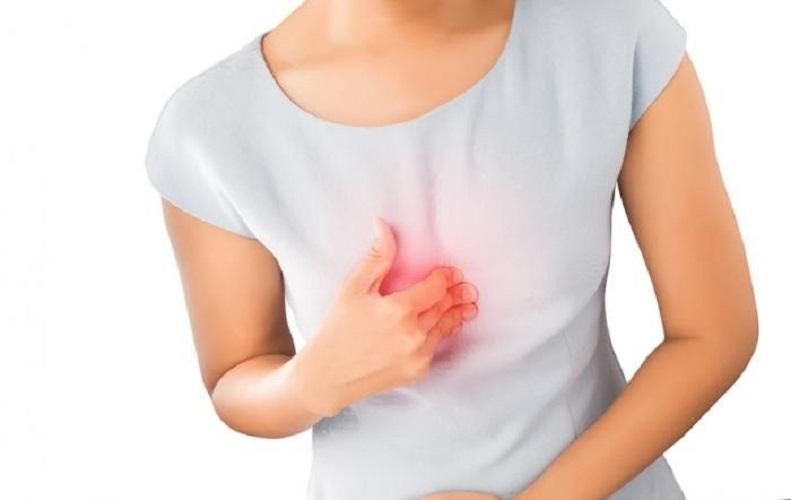
Reflux & Indigestion
What is reflux?
Reflux is an umbrella term for digestive complaints (inflammation, irritation) and usually presents as a burning sensation in the epigastric area. Reflux occurs when acid leaks from the stomach and moves up into the oesophagus (food pipe).
The most common symptoms of reflux include:
- Heartburn – a burning feeling rising up from the stomach or lower chest or burning chest pain or discomfort after eating
- Regurgitation – stomach acids coming back up into your mouth causing an unpleasant sour taste
- Pain or difficulty when swallowing
The nervous system and digestion
There is a close relationship between the health of the nervous system and the digestive system. It's worth noting that if you’re able to decrease your levels of nervous system stress, it will have an extremely beneficial effect on digestion and vice versa.
The nervous system influences the amount of digestive energy we have. For example, if we’re always running on adrenalin as in the case of nervousness and anxiety, the digestive organs receive less energy. This drastically reduces the capability to digest and assimilate energy from the food we eat. Sooner or later it becomes a vicious cycle – the lesser nutrients we have to nourish the nervous system, the weaker our digestive function.
Nervous system tension can cause a decrease in digestive function contributing to conditions such as reflux. When we ingest food, we produce enzymes in the mouth and stomach which break down food particles and help us absorb the nutrients. If we don’t have enough of these enzymes, food sits in the stomach and ferments, producing gas and causing discomfort, bloating, or indigestion.
Symptoms of insufficient digestion include:
- Bloating
- Heaviness after a meal
- Indigestion
- Flatulence
- Constipation
- Reflux
- Heartburn
Antacids and reflux
Pharmaceutical medications such as Nexium® and Motilium® are only ‘band-aid solutions’ that reduce stomach discomforts such as nausea and reflux. If the root cause of reflux remains unaddressed, digestive upsets can lead to further complications such as ulcers, inflammatory bowel conditions, malnutrition, skin problems, stress disorders, and liver disease.
Diet tips for reflux
- Begin each day with a small glass of warm water with ½ lemon squeezed in it. Lemon stimulates digestive juices, alkalises digestion, cleanses the bowels and kickstarts the liver to detoxify.
- Eat more green bitter foods such as rocket, radicchio and endive as they promote digestion.
- Avoid foods which aggravate and often cause reflux such as spicy, oily, and fatty foods, processed foods, coffee, alcohol and chocolate.
- Do not drink large amounts of liquids before or after eating. Liquids dilute the digestive enzymes and reduce digestive function further. Allow at least 20 minutes before drinking large amounts of liquids prior to or following a meal.
- Reduce intake of sugar, wheat, and dairy, as well as preserved, processed and refined foods. Avoid tea, coffee and alcohol as these may also compromise the effectiveness of your digestion.
- Eat less acidic and more alkaline foods to encourage a healthy digestive system and reduce rebellious Qi (reflux and indigestion).
- Lessen your consumption of saturated fats (animal fats and dairy foods), trans fatty acids, processed foods and simple sugars. Saturated fats and trans fatty acids are commonly found in cakes, cookies, biscuits, bakery products, margarine, doughnuts, and processed or deep-fried foods.
- Eating foods high in sulphur helps stimulate liver detoxification. High sulphur foods include garlic, brussels sprouts, cabbage, onions, broccoli, cauliflower and radish.
- Increase vegetable portions in your meals, especially those from the cruciferous family (Brussel sprouts, cabbage, broccoli and green beans) as they encourage the liver to detoxify and support bile function. Steam rather than boil your veggies to retain maximum nutrients.
- Introduce herbal teas such as dandelion, burdock, peppermint, green tea, lemon or ginger to support digestion, liver detoxification, and bile production.
-
Add good raw oils to your diet. Foods which contain good oils are raw olive oil, fish, avocados, nuts and seeds. Fish oil and flaxseed oil capsules are also great options.
-
Have a vegetable juice each day (beetroot, carrot, celery and ginger). It encourages liver detoxification, alkalises and cleanses the system, and provides vitamin C to move the bowels.
-
Cholagogue (bile-stimulating) herbs such as globe artichoke, dandelion, milk thistle, greater celandine, gentian, atractylodes, chamomile, yellow dock and agrimony may be helpful.
- Probiotics are beneficial in improving bile synthesis and gut/bowel health. Our Happy Greens and Happy Turmeric are the best source of LIVE probiotics.
Lifestyle changes to address reflux
- Manage stress as it is a major factor that can trigger or worsen symptoms related to reflux.
- Get sufficient sleep. Lack of sleep causes more acid to form in the stomach and cause reflux.
- Quit smoking if you’re a smoker. Smoking increases stomach acid production.
- Avoid alcohol. Alcohol consumption may increase symptoms of reflux.
- Address digestive issues and gall bladder insufficiencies.
It may also be beneficial to partake in a detoxification program to take the strain off the liver. If you're experiencing nausea, it may be due to poor liver function. The liver is usually burdened by the amount of waste produced by stress hormones. Improving liver function will have a dramatic effect on overall health and vitality.
It’s important to not just focus on the symptom, but look at the body holistically and delve into all aspects that may be contributing for the best outcomes. Need help deciphering why symptoms are present for you? Book into our online clinic for one-on-one care and an personalised treatment plan.
REFERENCES
Chen, S. H., Wang, J. W., & Li, Y. M. (2010). Is alcohol consumption associated with gastroesophageal reflux disease?. Journal of Zhejiang University. Science. B, 11(6), 423–428.
https://www.ncbi.nlm.nih.gov/pmc/articles/PMC2880354
Choe et al. (2017). Foods Inducing Typical Gastroesophageal Reflux Disease Symptoms in Korea. Journal of neurogastroenterology and motility, 23(3), 363–369.
https://www.ncbi.nlm.nih.gov/pmc/articles/PMC5503285/
Harding S. M. (2007). Sleep related gastroesophageal reflux. The tip of the iceberg is showing!. Journal of clinical sleep medicine, 3(5), 514–515.
https://www.ncbi.nlm.nih.gov/pmc/articles/PMC1978340/
Newberry, C., & Lynch, K. (2019). The role of diet in the development and management of gastroesophageal reflux disease: why we feel the burn. Journal of thoracic disease, 11(Suppl 12), S1594–S1601.
https://www.ncbi.nlm.nih.gov/pmc/articles/PMC6702398/
Song, E. M., Jung, H. K., & Jung, J. M. (2013). The association between reflux esophagitis and psychosocial stress. Digestive diseases and sciences, 58(2), 471–477.
https://www.ncbi.nlm.nih.gov/pmc/articles/PMC3576549/






















